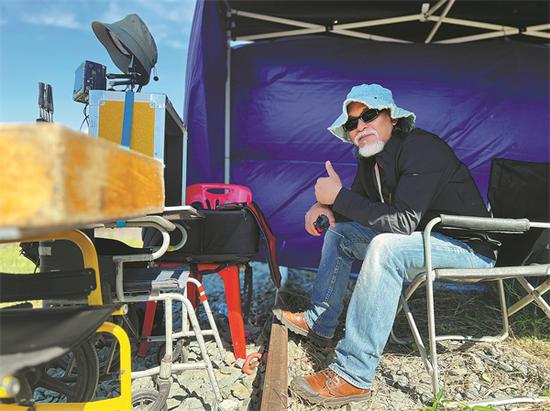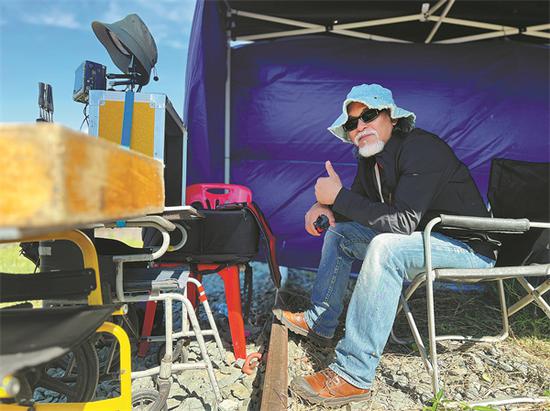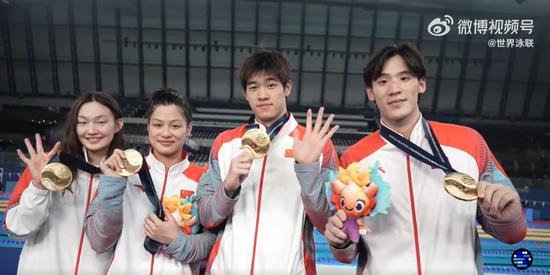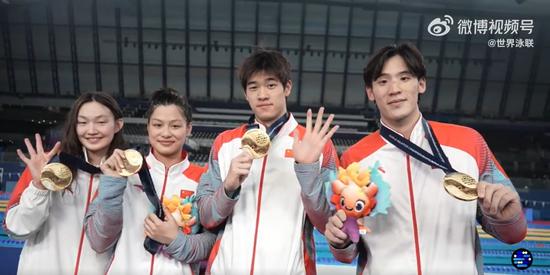Former officials in the soccer sector expressed remorse for how their corruption caused disorders in the sector in an anti-graft special aired on Tuesday night.
In November 2022, Li Tie, the former head coach of the Chinese national men’s football team, was placed under investigation.
Subsequently, more than a dozen high-ranking and mid-level officials of the Chinese Football Association came under scrutiny, including Du Zhaocai, former deputy director of the General Administration of Sport of China and former Party secretary of the CFA, and Chen Xuyuan, former president of the CFA.
The disciplinary and supervisory authorities and the public security agencies investigated dozens of individuals, including coaches, players, referees, club executives, and agents.
“Certain activities that seemed commonplace within the soccer circle were, in fact, illegal and criminal,” said Li Tie.
Li’s appointment as the head coach of the national team was attributed to his success in leading two China League One teams to promotion to the Chinese Super League.
However, investigations revealed that behind both instances of promotion, there were substantial instances of match-fixing.
After retiring as a player, Li transitioned to coaching and joined Hebei China Fortune Football Club in August 2015, and the club requested him to use his connections to influence opponents.
“During my time as a player, I detested those who engaged in match-fixing the most. However, because I knew that these actions might help increase our team’s chances of promotion, when I became an independent head coach for the first time, I also had a special desire to prove myself with this mindset,” he said.
Having tasted success through match-fixing at Hebei China Fortune, Li continued to promote match-fixing when he became the head coach of Wuhan Zall Football Club in 2017.
“By gaining ‘success’ through such improper means, it actually makes me more and more impatient and eager for quick results. In order to achieve good performance, I resorted to influencing referees, bribing opposing players and coaches, sometimes through clubs dealing with other clubs. This behavior becomes a habit, and eventually, there is even a slight dependence on these practices,” he said.
Li expressed regret, emphasizing the need to be down-to-earth, take the right path, avoid hasty pursuits of success, and refrain from trying to cut corners.
One significant reason for the rampant growth of corruption in football was the failure of the CFA, which should have taken on a supervisory role.
Over the years, several officials within CFA were involved in corruption and used their authority to help clubs gain undue advantages. Chen Xuyuan pointed out that corruption in Chinese soccer was pervasive and not limited to a specific aspect.
Chen admitted to accepting money from clubs, stating that if he were to crack down on such practices, it would be beating himself; then he just let the disorder go unchecked. Chen recalled that the night before he was elected as the sixth president of the CFA in August 2019, two local soccer association officials visited him, each offering 300,000 yuan ($42,200) as a token of appreciation and seeking his favor.
“They came into my room, casually placed their backpack on my sofa, and said, Congratulations, President Chen. We hope you can take care of us more. When I asked what they were offering, they responded it is just a tradition and they all do it this way,” Chen said.
“While fans could tolerate the backwardness of Chinese soccer, they could not forgive corruption,” Chen said.
As the president of the Chinese Football Association, Chen admitted primary responsibility and extended a deep apology to soccer fans nationwide.
Du Zhaocai, former deputy director of the GASC and former Party chief of CFA, similarly abused his position for personal gain, accepting millions of yuan in gifts and money while turning a blind eye to the irregularities in soccer.
Du admitted to using money and gifts as a common way to facilitate various matters, suggesting that this practice had become somewhat routine. “I also failed to play the role of a ‘goalkeeper’ in the anti-corruption campaign in Chinese soccer. In the midst of the club owners’ pursuit of interests, which was actually a subjective reason, I didn’t exert strict control and, in some cases, went along with the corrupt,” Du said.









